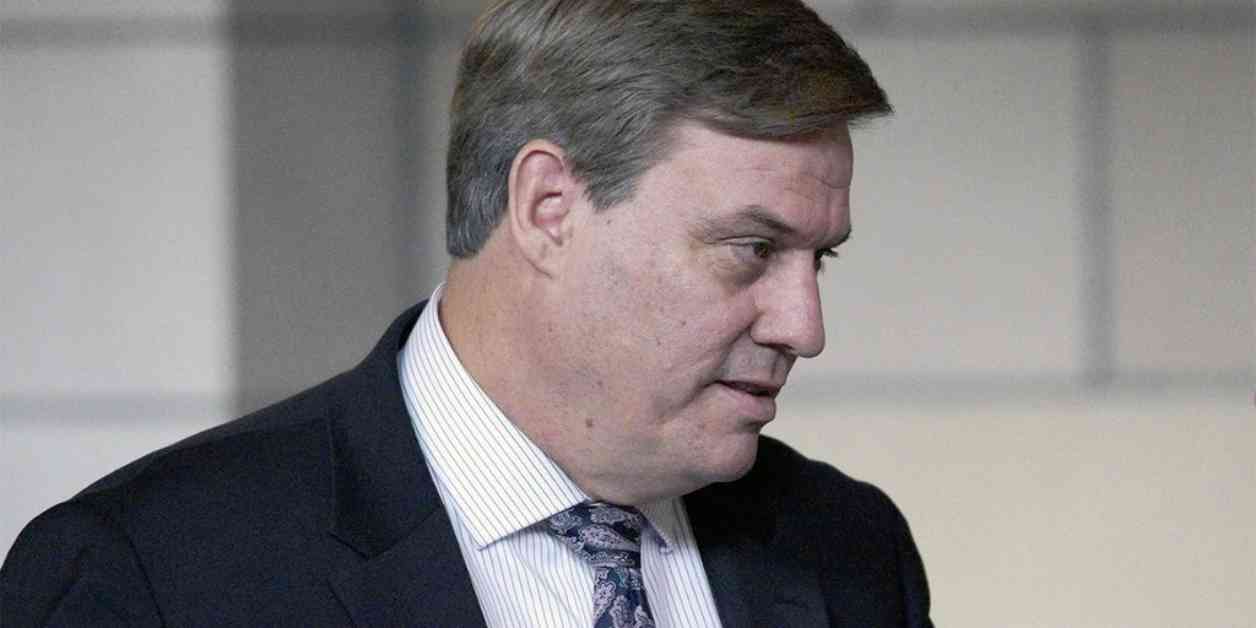Nebraska GOP Senator Refuses to Change Electoral College Allocation, Potentially Impacting Trump’s Strategy
Nebraska state Senator Mike McDonnell, a recent convert from the Democratic Party to the Republican Party, has made a significant decision that could have far-reaching consequences for former President Trump’s electoral strategy. McDonnell has refused to support an initiative to change how Nebraska allocates its electoral votes, a move that could jeopardize the Republican Party’s efforts to secure all of the state’s electoral votes for Trump.
Currently, Nebraska, along with Maine, allocates its electoral votes in a unique way. While most states operate on a winner-take-all system, Nebraska awards two electoral votes to the candidate who wins the state overall and one vote to the winner in each congressional district. This system has been in place since 1991 and is intended to ensure that all Nebraskans have a voice in choosing the President.
McDonnell, in a statement released on Monday, emphasized the importance of maintaining a fair and inclusive electoral process. He stated, “Elections should be an opportunity for all voters to be heard, no matter who they are, where they live, or what party they support.” McDonnell went on to highlight the benefits of the current system for Nebraska, including the national attention it brings to Omaha, the economic impact on the local economy, and the necessity for Presidential candidates to engage with all Nebraskans.
The senator acknowledged that there had been discussions about changing the allocation of electoral votes, but after careful consideration and consultation with constituents and national leaders, he has decided to maintain his stance. McDonnell expressed his belief that the timing, just 43 days before the upcoming election, is not conducive to making such a significant change. He has communicated his opposition to Governor Pillen and affirmed his commitment to upholding the current system until at least the 2024 election.
Despite pressure from fellow Republicans, McDonnell remains steadfast in his position and has urged the governor and his colleagues to allow the people of Nebraska to have a say in how their electoral votes are allocated. He emphasized the importance of letting voters, not politicians, have the final say on this crucial issue.
McDonnell’s decision carries significant implications for the Republican Party’s electoral strategy in Nebraska. Without the senator’s support, Republicans lack the two-thirds majority needed to implement a change before the upcoming election. This development has been met with disappointment from former President Trump, who had hoped to secure all five of Nebraska’s electoral votes.
In response to McDonnell’s stance, Trump took to Truth Social to express his frustration, criticizing the senator for standing in the way of a potential victory for Republicans. Trump thanked Governor Pillen for his efforts to simplify Nebraska’s electoral map but lamented McDonnell’s opposition as a hindrance to a Republican triumph. He also called out Mayor Jean Stothert for her role in the controversy and reiterated his preference for a winner-take-all allocation of Nebraska’s electoral votes.
The outcome of Nebraska’s electoral allocation could have significant implications for the 2024 election and beyond. Nebraska is one of nine states that have consistently supported Republican candidates since 1964, making it a crucial battleground in presidential elections. The state’s unique electoral system, combined with the recent shift in voting patterns, has brought attention to the potential impact of Nebraska’s electoral votes on the final outcome.
In a hypothetical scenario presented by the Associated Press, the allocation of Nebraska’s electoral votes could play a decisive role in determining the next President. With a close race between Vice President Kamala Harris and former President Trump, the outcome in Nebraska’s Second Congressional District could tip the balance in favor of either candidate. In the event of a tie in the electoral college, the decision would ultimately rest with the U.S. House of Representatives, potentially favoring Trump.
As the 2024 election approaches, the debate over Nebraska’s electoral allocation is likely to intensify. The decision by Senator McDonnell to uphold the current system has underscored the importance of ensuring a fair and inclusive electoral process for all Nebraskans. The outcome of this debate could have far-reaching consequences for the future of Nebraska’s electoral votes and the broader political landscape in the United States.





















